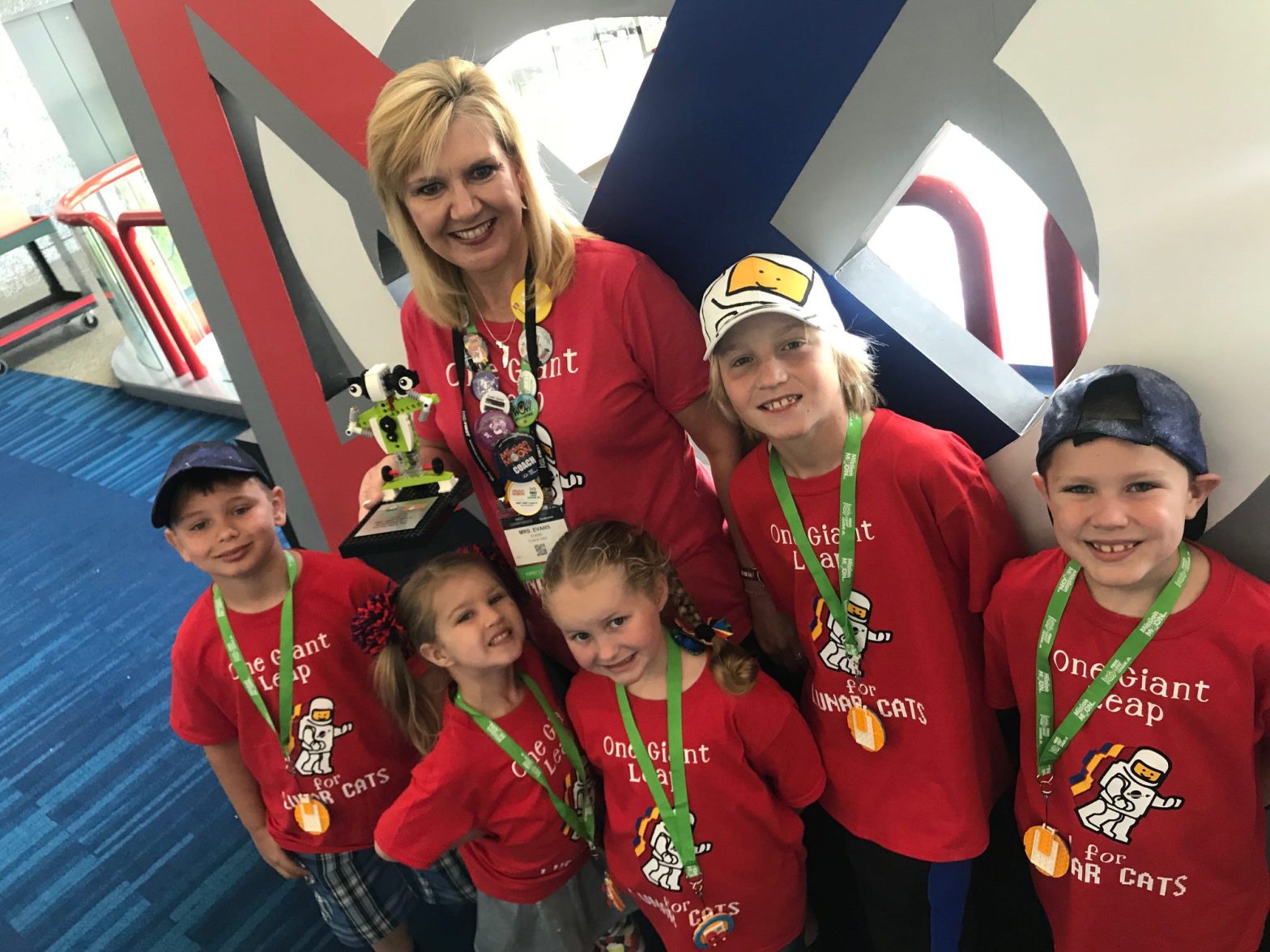![Lunar Cats members celebrate their “Explore and Design” award following the awards ceremony at the World Expo in Houston, Texas. Members include (from left) Isaac Henderson, Margot Palmer, Lily Ellison, Cade Stewart, Tank Palmer and Coach Sheryl Evans. [CONTRIBUTED PHOTO]](http://127.0.0.1/wordpress/wp-content/uploads/2022/01/ghows-DA-87e9c1bd-9515-6f13-e053-0100007f0065-c6cd672d.jpeg)
PAXTON — Five Paxton School elementary students traveled to Houston, Texas, last week with 15,000 robotics students from across the U.S. and 40 countries for the FIRST (For Inspiration and Recognition of Science and Technology) Championship Houston, which includes competitions for students in elementary, middle and high school divisions. Paxton’s students, ranging in age from pre-kindergarten to third grade, were selected to represent the 137 teams in their 16-county region of the Florida Panhandle based on their work on their “Mission Moon” project.
The young STEM students are members of the school’s FIRST Lego League, Jr. team self-named “Lunar Cats” and have been meeting since September to learn about the moon and what is needed to live there through hands-on activities. They then used their knowledge to build a moon base out of Legos that solved all of the problems humans would encounter on a long-term mission. Their build included coding two robots to deliver materials from their rocket and to push ice from the moon’s surface to the moon base for melting and provision of liquid water to the base.
“Each year FIRST chooses a theme for the year’s building and coding project and the kids were excited to investigate the moon this year by making craters with rocks and flour, visiting the moon with the Apollo 11 astronauts through virtual reality, and lots of other fun activities,” said team coach and fourth grade teacher Sheryl Evans. “The focus of our program is really three-fold: science, engineering and coding, and communication skills.”
In Houston, Paxton’s students gathered with 60 other FIRST Lego League, Jr. teams where so-called “soft skills” were emphasized. The team, in only their third year, participated in interviews by a panel of FIRST reviewers and presented their Lego moon base and display board at the World Expo for other teams and visitors from around the world to visit.
The Lunar Cats team received the “Explore and Design” award at the World Expo for their work, but Evans says that wasn’t the real prize. “Watching these young kids confidently answer questions about their design from the Australian team at the next table, shake hands and exchange swag with team members and their chaperones from the Ukraine, or giggle about something silly with the kids from the Vietnamese team, that’s when you see the process come full circle.”
“Science and engineering doesn’t exist in a vacuum. When students know their science, can build and code a solution using critical thinking skills, and then have the confidence to share that knowledge with others … that’s when we’re really preparing our students for real life.”
In the closing ceremonies held at Minute Maid Park, home to the Houston Astros, thousands of students listened as Dean Kamen, founder of FIRST, concurred with Evans, “We can’t build the future for our children. We must build our children for the future.”
FIRST was founded in 1989 to inspire young people’s interest and participation in science and technology. FIRST participation is proven to encourage students to pursue education and careers in STEM-related fields, inspire them to become leaders and innovators, and enhance their 21st century work-life skills.
This article originally appeared on Crestview News Bulletin: Paxton's junior robotics team attends World Expo
